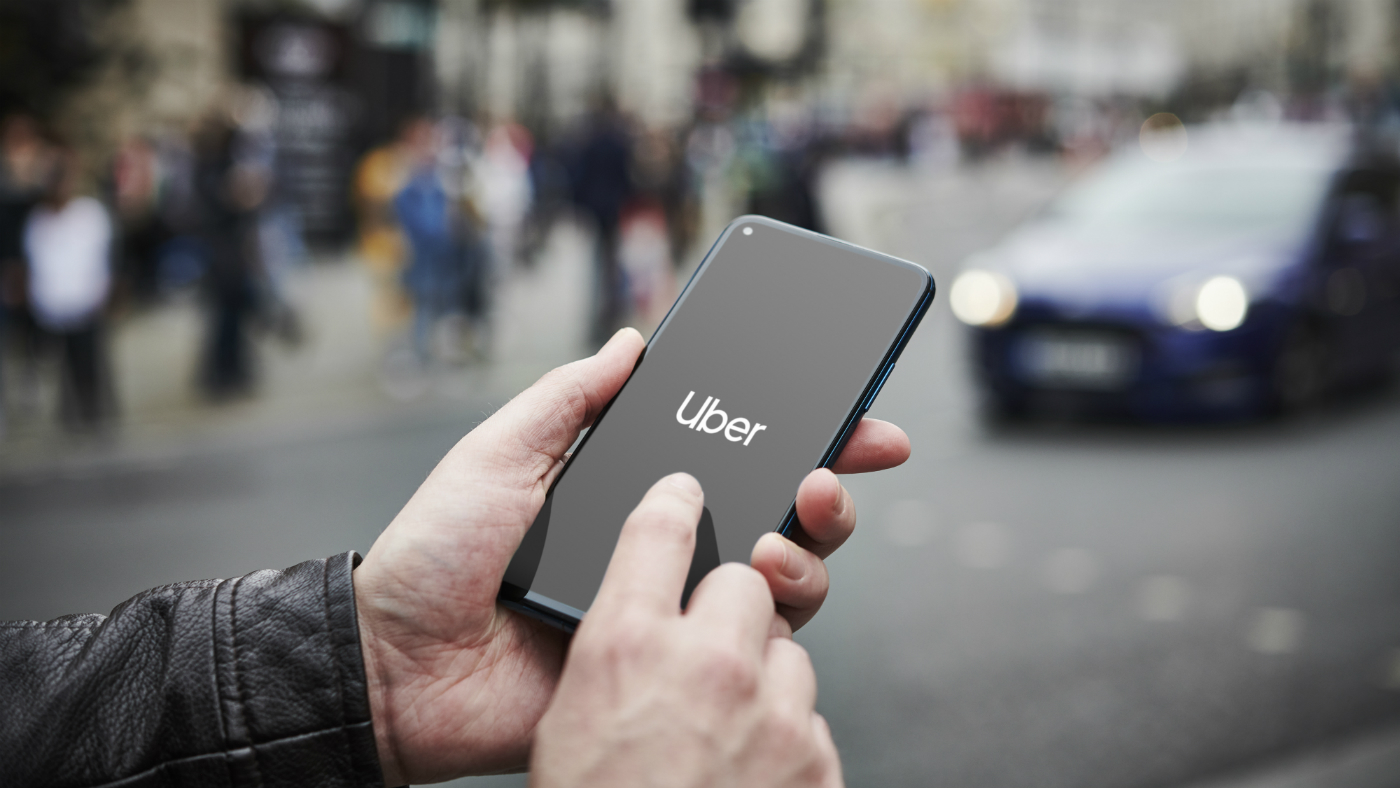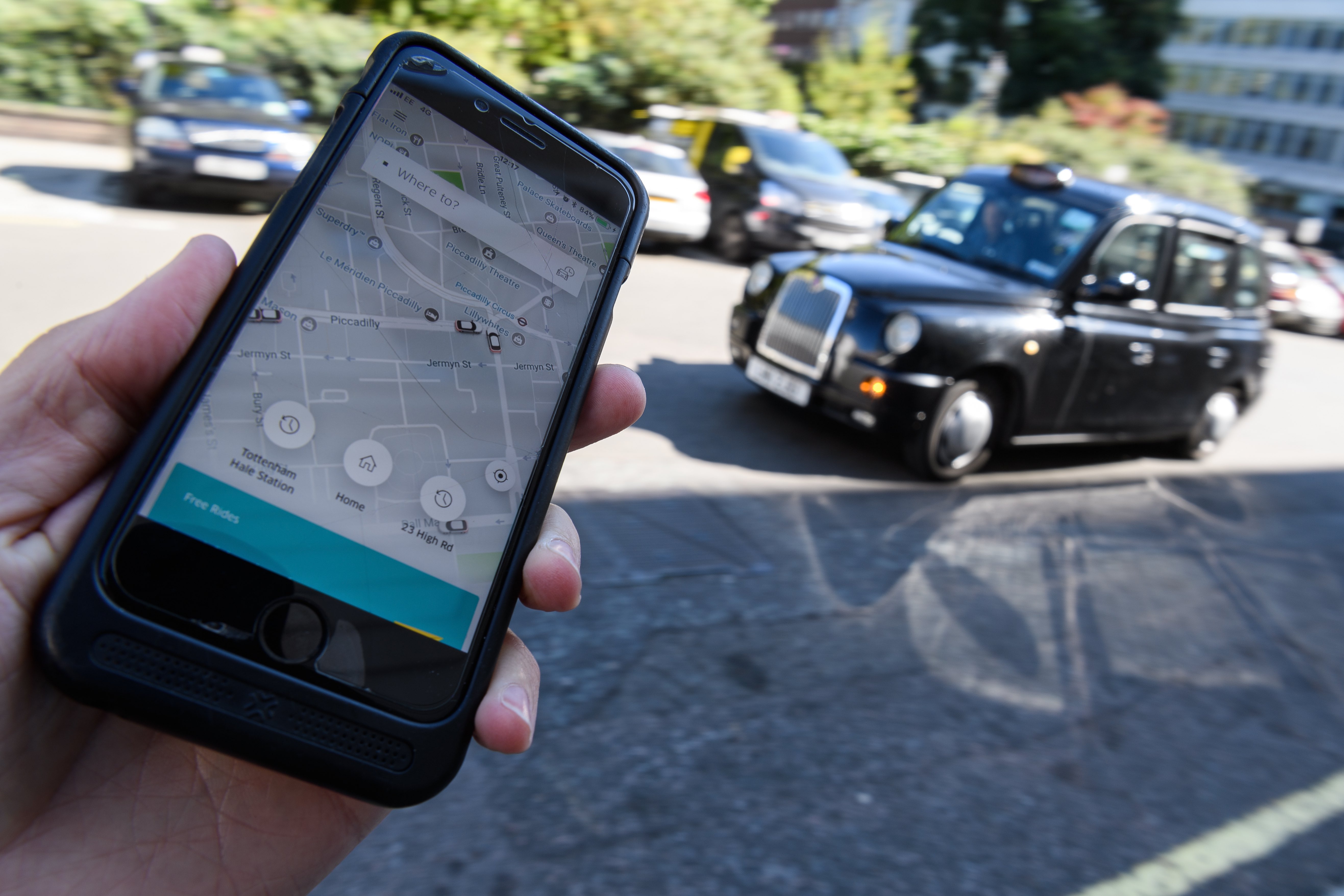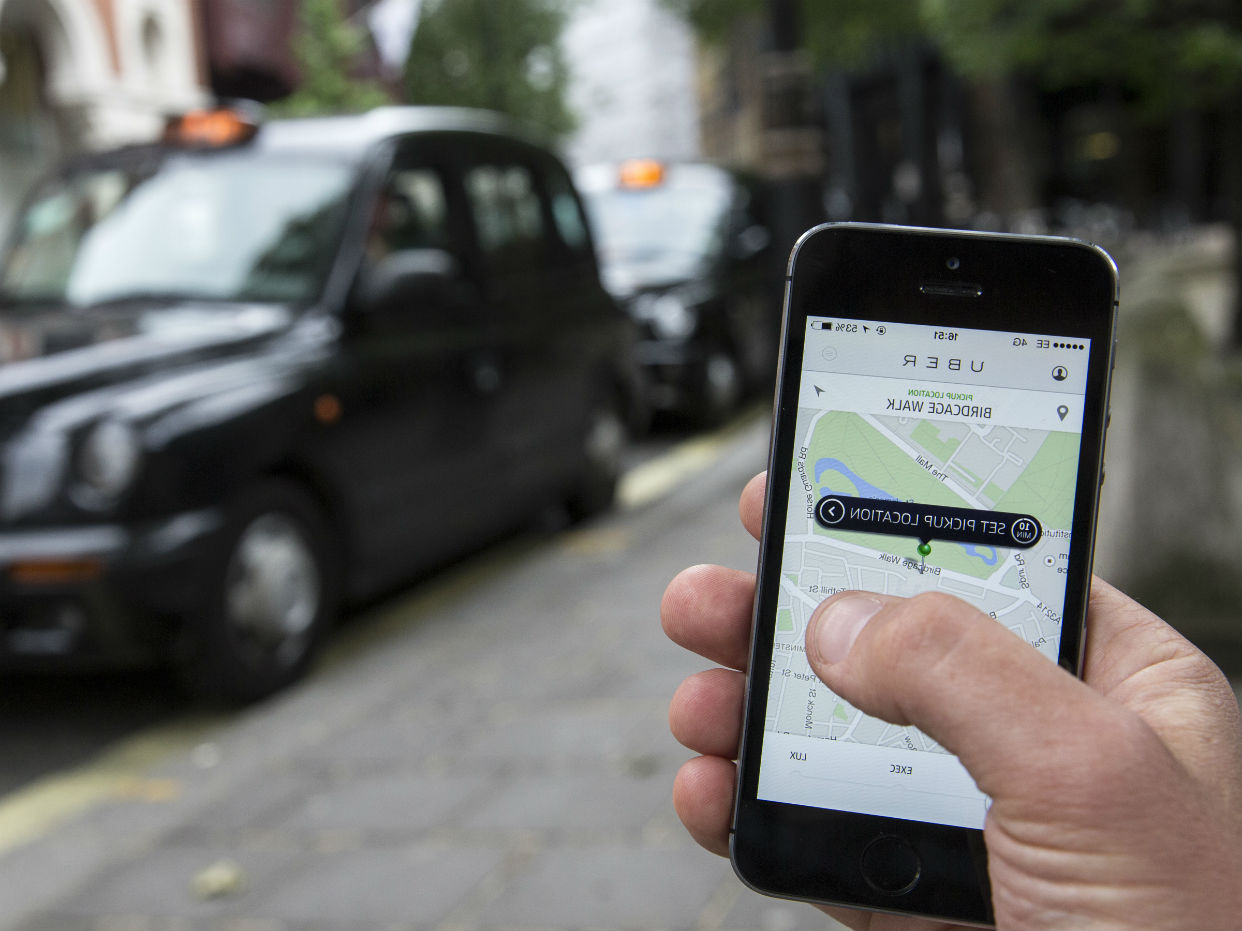How to beat arrogant Uber: take back your digital identity
With HubID, you’ll decide what you’re going to share with retailers – and you’ll even charge them for it

A free daily email with the biggest news stories of the day – and the best features from TheWeek.com
You are now subscribed
Your newsletter sign-up was successful
The hate campaign against Uber gathers like a Mexican wave rippling through a football stadium. Allegations of arrogance, sexism and privacy violations continue to roll through the tech world.
This week Uber executive Emil Michael was overheard suggesting that Uber’s critics might be silenced by digging up dirt on them. He was heard to say that Uber could spend “a million dollars” to help the company fight back against negative press by looking into journalists' “personal lives [and] families”.
Michael later apologised, saying he was “definitively wrong” and “felt terrible about any distress” he’d caused Sarah Lacy, the principal journalist he had suggested targeting.
The Week
Escape your echo chamber. Get the facts behind the news, plus analysis from multiple perspectives.

Sign up for The Week's Free Newsletters
From our morning news briefing to a weekly Good News Newsletter, get the best of The Week delivered directly to your inbox.
From our morning news briefing to a weekly Good News Newsletter, get the best of The Week delivered directly to your inbox.
Meanwhile privacy concerns abound. It turns out Uber is rather shamelessly tracking our movements and doing odd things with our data. It also turns out we don’t like that. The best example of this is the now infamous ‘Rides of Glory’ blog post in which Uber tracked when and where Uber clients got lucky in love.
The results are indeed fascinating. Bostonians are friskier than other citizens – or at least, when in Boston, Uber riders are friskier than they’d be elsewhere. Tax rebate day and Cinco de Mayo - I blame the tequila - are particular nights when people play away. (In the 1990s we called the trip home where you wore the same clothes as the night before the “walk of shame”. Now, it appears to be the Uber of shame.)
Uber not only tracks users' movements as a whole, but also individually. ‘God View’ - not the most sensitive of names - is an application which shows the location of Uber vehicles and customers who have requested a car. It is widely available to corporate employees.
Recently a Buzzfeed journalist stepped out of her Uber car at Uber’s New York HQ to interview Josh Mohrer, the general manager of Uber New York. She found Mohrer waiting for her. “There you are,” he said, pointing to his iPhone. “I was tracking you.” Uber have since said that they’re investigating the incident which violates their privacy policy.
A free daily email with the biggest news stories of the day – and the best features from TheWeek.com
While I agree that it is creepy and weird, I’d argue that rather than expecting Uber to do something about it, we should instead take the question of our identity into our own hands. How? Well, you can simply delete Uber, though as I’ve written here before, you’re committing to taking more expensive cab rides.
Everyone is snooping, including the government and most of the stores you visit. I’ll never forget John Rose from Boston Consulting Group telling me that given facial recognition software and the existing links between different viewers of your identity - Amazon, Google, etc - "by the time you’ve taken four steps into a retailer in the US I can predict what you’re there to buy".
Now the beginnings of a solution are emerging. Alex ‘Sandy’ Pentland and John Clippinger have been working on creating an online digital identity through their project ‘Open Mustard Seed’ at MIT's Media Lab. The idea is that “by being ourselves, we naturally generate our own digital credentials”.
In other words, your voice, iris, heartbeat, face and location identify that you are you. These could be combined into a digital version of you that is used to interact online. You'd then choose which bits of information to share with each site you interact with.
The first use of this digital ID is expected to be with digital currencies - and to this end they’ve partnered with Hub Culture to create HubID.
"We believe that you should own and control your data, especially around your identity,” Stan Stalnaker, founding director of Hub Culture, told me. “With HubID your data goes into a vault which spits out a badge that has tabs of information about you. It’s held cryptographically and securely. You decide which parts of the information to share."
So, you might only share a link to your bank account with Starbucks when you go to buy your cappuccino. Same with Uber - the car company might only know your relationship to your card number. It might not even know your full name.
"Moreover," says Stalnaker, “if they want to keep or use that information they’d need to pay you to keep it. The implicit flow of information reverses. You hold the information about yourself. If others want to use it, they have to ask you for it."
Of course this whole story gets more interesting when you start to introduce digital currencies, but that's for another day.
The complaints against Uber are worrying. They are more than the case of the media taking aim at the latest start-up hero. As venture capitalist and blogger Fred Wilson says, Uber combines “ruthless execution with total arrogance”.
You could also level that accusation against the US government in the wake of the Snowden affair. But rather than complain about the fact that human nature is snoopy, curious and sometimes worryingly creepy, let's change the nature of the game and take our identities back.
-
 Switzerland could vote to cap its population
Switzerland could vote to cap its populationUnder the Radar Swiss People’s Party proposes referendum on radical anti-immigration measure to limit residents to 10 million
-
 Political cartoons for February 15
Political cartoons for February 15Cartoons Sunday's political cartoons include political ventriloquism, Europe in the middle, and more
-
 The broken water companies failing England and Wales
The broken water companies failing England and WalesExplainer With rising bills, deteriorating river health and a lack of investment, regulators face an uphill battle to stabilise the industry
-
 Is this the end of Uber in London?
Is this the end of Uber in London?In Depth Transport for London revokes licence and says taxi firm is not ‘fit and proper’
-
 Daimler and Bosch to launch AI-powered taxi service next year
Daimler and Bosch to launch AI-powered taxi service next yearSpeed Read Free driverless service will debut in California
-
 Uber driver was watching The Voice before fatal self-driving car collision
Uber driver was watching The Voice before fatal self-driving car collisionIn Depth Police say the Arizona accident was ‘entirely avoidable’
-
 Uber driverless software ‘ignored’ pedestrian in fatal crash
Uber driverless software ‘ignored’ pedestrian in fatal crashSpeed Read Flaw reportedly meant that on-board systems detected woman but decided not to react
-
 Women-only Uber service could be launched in London
Women-only Uber service could be launched in LondonSpeed Read TfL’s new policy aims to improve passenger safety in the ride-hailing sector
-
Airbus drone taxi completes maiden flight
Speed Read Test vehicle reached a ‘modest’ altitude of five meters
-
 Uber partners with Nasa to launch flying car service by 2020
Uber partners with Nasa to launch flying car service by 2020Speed Read Two firms will develop new air traffic control system to help new ride-sharing project take off
-
 Transport for London backs down on Uber regulations
Transport for London backs down on Uber regulationsSpeed Read Private hire company delighted after 'bonkers ideas' are dropped, but black cabs say it is a 'missed opportunity'